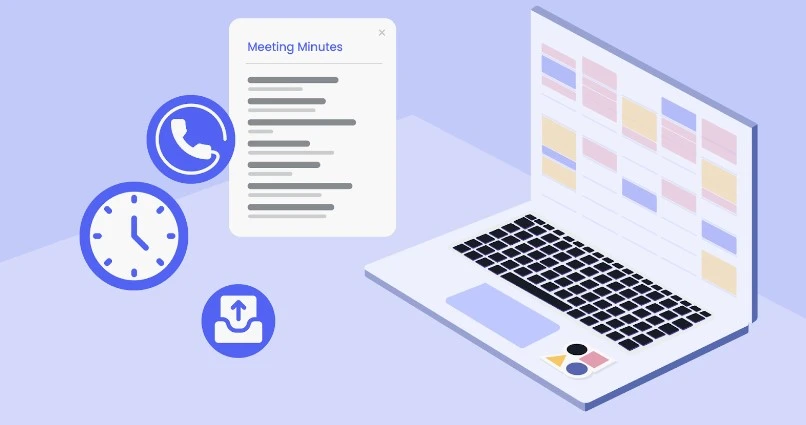Executive Assistant Solutions
In today’s fast-paced business environment, managing day-to-day operations can become overwhelming. Executives are expected to juggle multiple responsibilities, from leading teams to making high-stakes decisions. This is where an executive assistant solution comes in—offering businesses a way to stay organized, efficient, and focused on core goals. But what exactly does this entail, and why should companies consider it? Let’s explore how executive assistant solutions can be a game-changer for modern enterprises.
What is an Executive Assistant Solution?
An executive assistant solution refers to the utilization of highly skilled professionals, often supported by advanced technologies, to help manage the administrative tasks of executives. These assistants ensure that schedules, communication, and essential projects run smoothly, allowing executives to focus on high-priority tasks.
Traditionally, executive assistants were hired as in-house employees, working closely with company leaders. However, the rise of remote work and digital transformation has expanded the concept to include virtual assistants (VAs) who work from anywhere in the world but offer the same level of professionalism and reliability.
Key Responsibilities of Executive Assistants:
- Calendar and Schedule Management: Keeping track of meetings, appointments, and deadlines.
- Email Management: Screening, organizing, and responding to emails.
- Travel Arrangements: Coordinating business trips, including flights, accommodation, and transport.
- Meeting Coordination: Preparing agendas, taking minutes, and following up on action items.
- Document Preparation: Drafting reports, presentations, and correspondence.
- Task Prioritization: Ensuring that urgent tasks are handled promptly and efficiently.
Why Executive Assistant Solutions Matter
1. Enhanced Productivity
One of the most significant benefits of having an executive assistant is the direct impact on productivity. With an assistant managing administrative responsibilities, executives can focus on strategy, leadership, and decision-making. This delegation frees up valuable time and ensures that no detail goes unnoticed.
2. Better Time Management
Time is one of the most valuable resources for executives. Executive assistant solutions provide a structure that ensures schedules are organized, deadlines are met, and priorities are aligned. Whether it’s a critical meeting or a personal commitment, an executive assistant ensures everything stays on track.
3. Increased Efficiency with Technology
Modern executive assistants are often tech-savvy, making them more than just administrative support. They can leverage various tools like project management software, cloud storage, communication platforms, and CRM systems to streamline workflows and improve efficiency across the board. Many executive assistants are also trained in using AI tools that help automate repetitive tasks like scheduling or managing emails, creating a seamless flow of operations.
4. Cost Savings with Virtual Assistants
With the rise of remote work, virtual executive assistants are becoming more popular. This solution is especially beneficial for businesses that may not need full-time, in-house support. Virtual assistants work on a flexible basis, which can reduce overhead costs related to office space, equipment, and benefits. Additionally, companies can tap into a global talent pool, often finding highly skilled assistants at competitive rates.
5. Improved Work-Life Balance
Executives often find themselves working long hours, leaving little time for personal life. By delegating essential yet time-consuming tasks to an assistant, executives can strike a healthier balance between work and personal life. This leads to reduced burnout and better overall well-being, which in turn can positively impact leadership and team morale.
Choosing the Right Executive Assistant Solution
Selecting the right executive assistant solution depends on your unique business needs. Here are a few considerations:
- Skill Set: Does the assistant have the skills required to handle specific tasks such as project management, client relations, or technical support?
- Experience: Look for executive assistants with relevant industry experience, particularly if your business operates in a specialized field.
- Availability: Determine whether you need full-time or part-time support, as well as if virtual or in-house assistance is the best fit.
- Technology Proficiency: Ensure the assistant is comfortable using the tools your company relies on.
Future of Executive Assistant Solutions
As technology continues to evolve, so will the role of executive assistants. Artificial Intelligence and automation are making routine tasks easier, allowing assistants to take on more strategic responsibilities. Additionally, the shift towards remote work is driving more businesses to explore virtual executive assistant solutions, offering increased flexibility without compromising on quality.
By integrating executive assistant solutions into their operations, companies can remain competitive in an increasingly demanding business world, allowing executives to focus on growth and innovation.
In conclusion, executive assistant solutions are a vital asset for any organization looking to improve efficiency, streamline operations, and free up leadership time. Whether opting for an in-house assistant or a virtual solution, businesses can expect enhanced productivity, cost savings, and better overall management of executive tasks. As the landscape of work continues to shift, adopting flexible and tech-driven executive assistant solutions will only become more critical.



